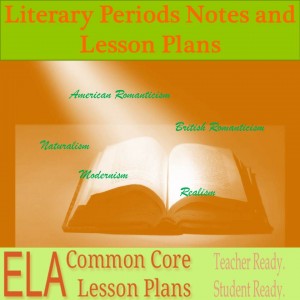If you’re like me, you spend hours contemplating the colonial period in American History from an historical perspective. But there’s a literary perspective as well.
In fact, if you’re a teacher of American Literature, you’ve probably incited your class to rebel by cramming colonial prose into the curriculum. That’s what I did when I taught American Literature. And that’s what I’ll do again. After all, Colonial Literature and the Age of Enlightenment has produced some of the most important and most influential documents in the history of the world.
Before we get to a brief description of Colonial Literature, I’m gonna give you a graphic organizer and lesson plan to help students analyze pieces from the Colonial Period of American Literature and the Age of Enlightenment: The Colonial Period and Age of Enlightenment Lesson Plan.
The Colonial Period and the Age of Enlightenment
Colonial literature is the body of creative work produced by the early American colonists. These works include the personal, emotional poetry of Anne Bradstreet, the jeremiads produced by preachers like Increase Mather and Jonathan Edwards, and the popular Indian captivity narratives. Puritans wrote poetry and sermons in the service of God, and explorers and adventurers wrote tracts on their discoveries in hopes of obtaining funding and political support. Colonial leaders, aware that they were creating a new land with a new history, carefully recorded everything that occurred in their new homes. When printing presses arrived, their owners published broadsides, pamphlets and sermons. The high-selling Indian captivity narratives perhaps represent the first wholly American genre of writing.
The Enlightenment and The American Revolution

"Colonial America 1607-1783 -- Literature." University of North Carolina at Pembroke, n.d. Web. 30 Aug. 2016.
Colonial Literature Characteristics
- Writing had a practical purpose: to educate readers and inspire personal action
- Writing professed the belief that hard work was necessary for happiness
- Contained religious perspectives and undertones: convictions that Americans were God’s chosen people
Enlightenment and Revolutionary Literature Characteristics
- Belief in natural law
- Interest in human nature and its potential
- Logic-based approach to world issues
Important Works from the American Literature Colonial Period and Revolutionary Period
- William Bradford's Of Plymouth Plantation
- The poetry of Anne Bradstreet
- "Sinners in the Hands of an Angry God" by Jonathan Edwards
- The Interesting Narrative of the Life of Olaudah Equiano by Olaudah Equiano
- Mary Rowlandson's account of being imprisoned by Indians
- The Autobiography of Benjamin Franklin
- Thomas Paine's Common Sense
- "Speech in the House of the Virginia Convention" by Patrick Henry
- "The Declaration of Independence" by Thomas Jefferson
Last Updated on December 5, 2016 by Trenton Lorcher
Share This:

